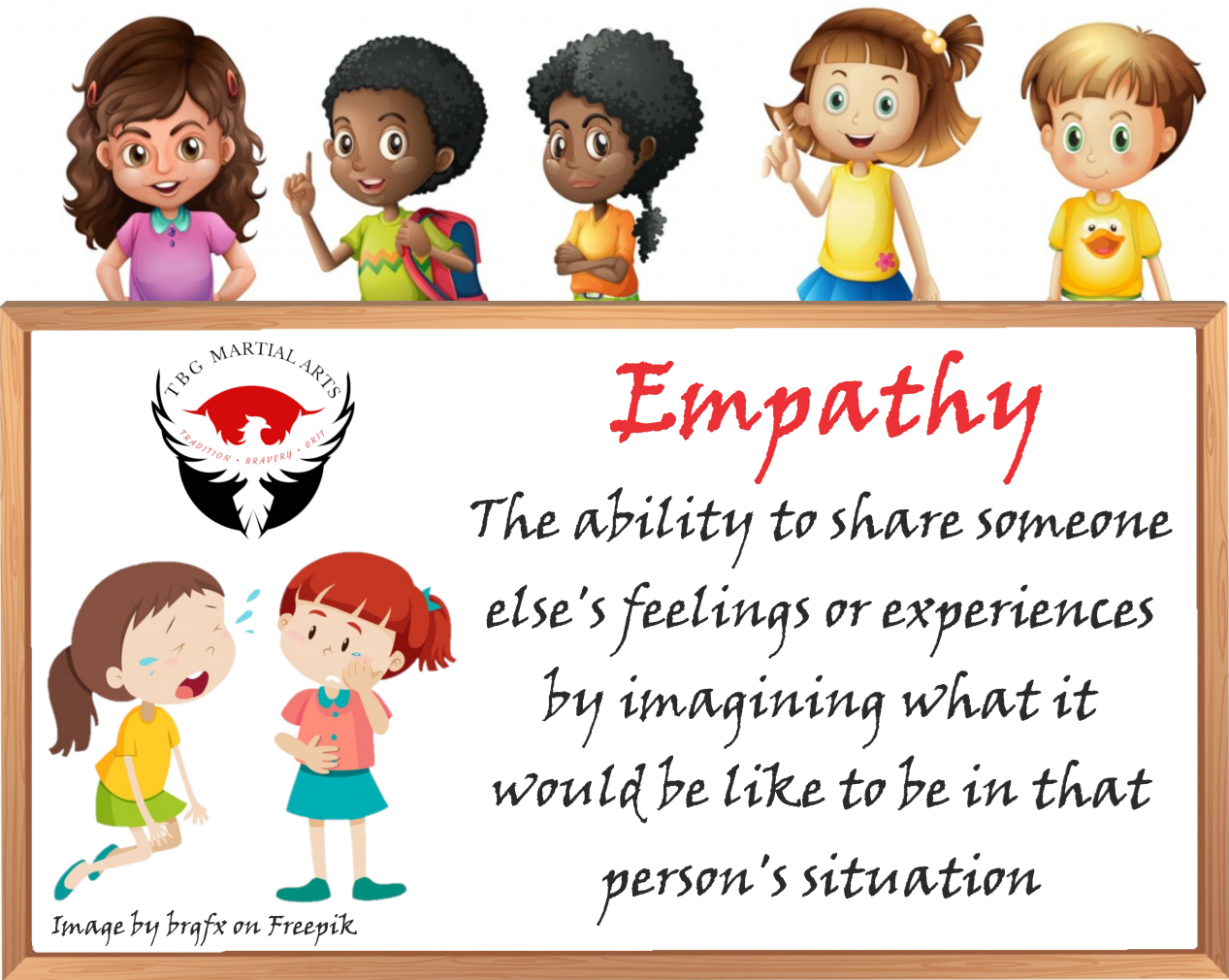Word of the Week #45

The Connection Between Martial Arts and Empathy
One of the less talked-about, but equally important, aspects of martial arts is the development of empathy. Empathy is the ability to understand and share the feelings of others, and it plays a crucial role in fostering meaningful relationships and creating compassionate communities. Let's explore how martial arts cultivates this essential human quality.
Understanding Others’ Perspectives
In martial arts, practitioners frequently engage in sparring and partner exercises, which require close interaction and collaboration. To effectively train with a partner, students must be attuned to their partner's movements, reactions, and capabilities. This practice naturally fosters empathy, as it encourages students to see the world from another person's perspective, understanding their strengths, weaknesses, and emotions.
Respect and Compassion
Respect is a foundational value in martial arts. Students are taught to bow to their instructors and peers as a sign of respect and humility. This practice extends beyond physical gestures and promotes a deeper sense of compassion and empathy. By respecting others, students learn to value their partners' experiences and feelings, which is a critical component of empathy.
Non-Verbal Communication
Martial arts often involves non-verbal communication through body language and physical movements. Practitioners must learn to interpret and respond to these cues effectively. This heightened awareness of non-verbal signals enhances empathy, as students become more sensitive to the unspoken emotions and intentions of others.
Community and Support
Martial arts schools often function as close-knit communities where students support and encourage one another. This environment fosters a sense of belonging and mutual respect. As students experience this supportive community, they develop empathy by recognizing the importance of helping and caring for others, both inside and outside the dojo.
Managing Conflict and Emotions
Training in martial arts teaches students to manage their emotions and resolve conflicts peacefully. Techniques such as controlled breathing, mindfulness, and self-control are integral to martial arts practice. By learning to control their own emotions, students become more empathetic, understanding how to remain calm and considerate in challenging situations, and helping others do the same.
Ethical and Moral Lessons
Many martial arts traditions are rooted in ethical and moral teachings. These lessons emphasize values such as honesty, integrity, and compassion. By internalizing these principles, students develop a strong moral compass, which includes a deep sense of empathy for others' experiences and feelings.
Martial arts is much more than a physical discipline; it is a holistic practice that nurtures both the body and the mind. By fostering respect, understanding, and compassion, martial arts cultivates empathy in its practitioners. This development of empathy is not only beneficial for personal growth but also contributes to building more compassionate and connected communities. Through martial arts, individuals learn to appreciate and share the feelings of others, making the world a kinder and more empathetic place.
Have Questions?
Thank you!
A member of our staff will be contacting you soon. Can't wait to see you on the mat!

